World
Mexicans with HIV/AIDS struggle with treatment access
Government in 2019 created new health care entity
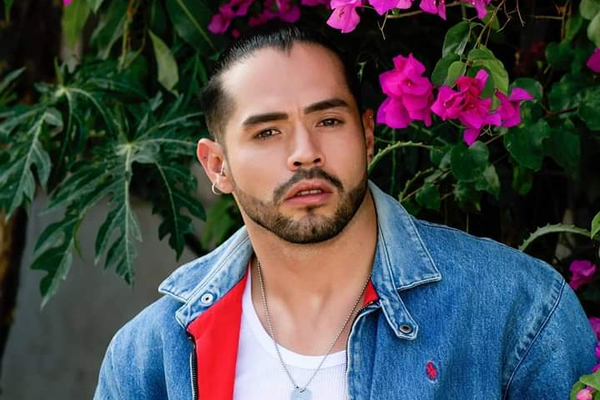
Roberto Navarro has been a dancer since he was 17. Jazz became his passion and he fell in love with classical dancing after he took many classes. And he began to teach four years later.
“I’m so happy when I teach dancing to my girls because they bring me so much joy, I feel like I help my girls to become better women, without noticing I’m some kind of a therapist,” Navarro told the Washington Blade.
He discovered the discipline of dancing in heels in 2014, which made him connect and explore more with his sexuality. He did, however, suffer a lot of bullying because of it.
Navarro — a 33-year-old gay man who is originally from Sahuayo de Morelos in Michoacán state — currently owns a dance salon. Navarro said he started to become an entrepreneur, but it hasn’t been easy because of the pandemic.
He was diagnosed with HIV in 2016. Navarro suffered from depression for several months after he learned his status.
“I woke up very overwhelmed in the morning thinking that I had to go to the hospital to make a long line of patients; to have blood drawn for fast screening tests,” he said. “We arrived at 7 in the morning and left until 1 in the afternoon.”
Navarro has been receiving treatment for almost five years, and he is still dancing.
“Subsequently, I went to my consultations every three or six months depending on my results,” he stated. “By the third month I was undetectable.”
Navarro started with Atripla, an antiretroviral drug he received through Mexico’s Seguro Popular, and he was undetectable a month later.
A shortage of Atripla forced a change to Biktarby after President Andrés Manuel López Obrador in 2019 scrapped Seguro Popular and created the Health Institute for Wellbeing (INSABI). The pharmaceutical company Gilead has said there are many counterfeit versions of the drug on the market.
Seguro Popular in 2018 had almost 52 million beneficiaries. The National Council for the Evaluation of Social Development Policy (CONEVAL) said INSABI at the end of 2020 had more than 34 million beneficiaries.
Antiretroviral drugs have been available in Mexico since 2003, although the Mexican health system is divided into various subsystems based on where one works.
- Institute of Social Security and Services for State Workers (ISSSTE)
- Mexican Institute of Social Security (IMS)
- INSABI (Health Institute for Wellbeing) that was previously known as the Seguro Popular
They vary in the time it takes to receive medication and the time for CD4 viral load tests. The availability of appointments with infectious disease specialists varies in each of the three public health systems.
People with INSABI will take longer to get tests and have access to doctors. It must also be recognized that everyone, in theory, has the possibility of accessing medicines, but it also depends on the states in which they live.
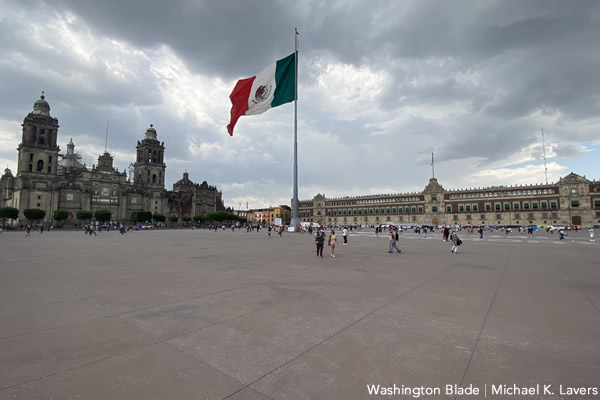
From Seguro Popular to INSABI
The number of people without access to healthcare in Mexico rose from 20 million to almost 36 million between 2018-2020. INSABI, more than a year after its creation, still does not completely cover the same amount as its predecessor.
INSABI is an independent agency through the Ministry of Health that aims to “provide and ensure the free provision of health services, medicines and other inputs associated with people without social security.” The General Health Law says it was to replace Seguro Popular, which was in place from 2004-2019.
“The situation for treatment right now, it’s quite complex, particularly because there have been many changes in the health department of Mexico, and this has to do with the fact that in 2003 when the Seguro Popular was established; there was an increase to comprehensive care for people living with HIV and resources for prevention strategies which are mainly handled through civil society organizations that obtained money from the government.” stated Ricardo Baruch, who has worked at the International Family Planning Federation for almost 15 years.
López,, who took office in 2018, sought to eliminate Seguro Popular, which was the mechanism by which access to antiretroviral drugs were given to most people living with HIV in the states with greater vulnerability. This change was done in theory to expand access for everyone, but the opposite happened.
There is less access due to the modification of purchasing mechanisms and a huge shortage throughout the country. Baruch says this situation has caused a treatment crisis across Mexico.
“The truth is that the Seguro Popular helped me a lot to have my treatments on time, what I do not like is that there is not enough staff to attend all the patients that we are waiting for our consultations,” said Erick Vasquez, a person who learned in February he is living with HIV.
Vasquez, 34, is an artist who works in Guadalajara and Playa del Carmen.
Vasquez did not have health insurance like other people through IMS. He obtained access to Seguro Popular through an organization that supports people with HIV, but he has to wait until October for his first appointment.
Vasquez, who has a very low viral load, in March began a job through which he obtained IMS. He had access to his treatments through it.
He received three months worth of Biktarvy at the end of June; one prescription for each month. He said the drug is not difficult to obtain.
“I have not had any problem with the medication, it is not difficult to get it when you are on the insurance, but there is still a long time left until October,” said Vasquez.
The cost of the antiretroviral treatment in Mexico is approximately $650 per month, and one bottle has only 30 pills.
“I have not had side effects, I have not had nausea, I don’t vomit, I take a pill daily, it is one every 24 hours,” Vasquez said. “I feel very well and I hope very soon to be undetectable.”
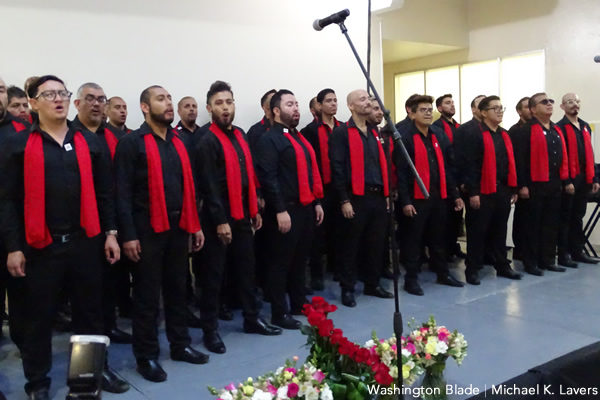
Infrastructure over health
Prevention resources were eliminated, and health resources today are used to finance the Felipe Ángeles International Airport at the Santa Lucía military base in Zumpango in Mexico state, a new refinery, the Mayan train and other major infrastructure projects. And this causes many people who want to access treatment not to receive them. It takes much
The cost of the work, including the land connected with the Mexico City International Airport and various military facilities, is set at 82,136,100,000 Mexican pesos and there are provisions to serve 19.5 million passengers the first year of operations, according to a report from the Secretariat of National Defense (SEDENA).
There are, on the other hand, far fewer HIV tests and this shortage has led to a much higher arrival of late-stage HIV cases and even AIDS in hospitals. This trend is particularly serious among transgender women and men who have sex with men.
“Here in Mexico we concentrate the HIV pandemic, and that we are at a time when this issue of shortages has not stabilized, that there is already more clarity in purchases, but it is well known that all these changes in health systems continue for a year over the years they cause the situation to be increasingly fragile and in the matter of migrants that previously there was certainty so that they could access medicines through the Seguro Popular, now there is a legal limbo for which in some states it depends: on the states, the clinic or social worker; whether or not they give you medications,” said Baruch.
“If you are not a resident or a national here in Mexico, this is a matter won for people in transit seeking political asylum or who had stayed in Mexico,” he added.
Migrants lack access to HIV treatment
Mexico is located between the three regions with the world’s highest rates of HIV: the Caribbean, Central America, and the U.S. This has been used as a foundation for a culture of hatred against migrants, according to Siobhan McManus, a biologist, philosopher, and researcher at the Center for Interdisciplinary Research in Sciences and Humanities of the National Autonomous University of Mexico.
The lack of opportunities, violence and climate change that forces people whose livelihoods depend on agriculture to abandon their homes prompts migration from Central America.
Most migrants — LGBTQ or otherwise — experience violence once they arrive in Mexico.
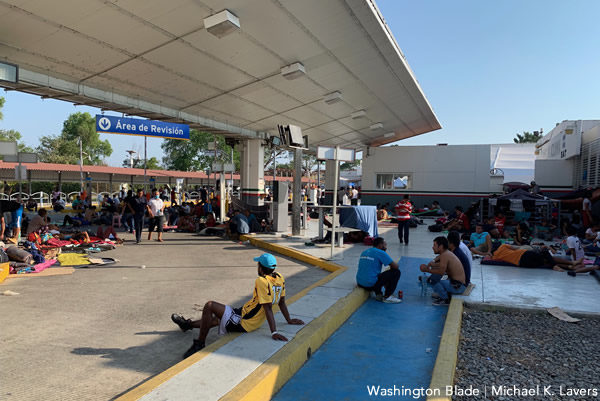
Chiapas and other states have created an extensive network of clinics known by the Spanish acronym CAPASITS (Centro Ambulatorio para la Prevención y Atención en SIDA e Infecciones de Transmisión Sexual) that are specific HIV and STD units in major towns. They are often within close proximity to most people’s homes.
Sonora and Chihuahua states, which border the U.S., often have such clinics in only one or two cities. This lack of access means people will have to travel up to six hours to access these treatments.
People who have already been receiving treatment for a long time were previously given up to three months of treatment. They now must travel every month to receive their medications because of the shortages.
PrEP available in Mexico
The shortage of medical drugs for people who already live with HIV is a current issue for the Mexican government, but they have made free PrEP available for those who want to prevent themselves from the virus.
Ivan Plascencia, a 24-years old, who lives in Guadalajara, the capital of Jalisco state , has been using PrEP for several years since he became sexually active and he never had any complaints about the medication. Plascencia instead recommends his close friends to take advantage of this prevention drug that is available in one of the CAPASITS where he lives.
Post-pandemic screening tests
There are an estimated 260,000 people in Mexico who are living with HIV. Upwards of 80 percent of them knew their status before the COVID-19 pandemic.
The number of new cases that were detected in 2020 were 60 percent less than the previous year, but this figure does not mean HIV rates have decreased.
In Jalisco, which is one of Mexico’s most populous states with upwards of 8 million people, there was a 40 percent increase in positive cases in 2020 compared to 2019. This increase has put a strain on service providers.
India
India’s first transgender healthcare clinic reopens
Mitr Clinic closed after losing USAID funding

A U.S. Agency for International Development funding freeze in January forced the closure of India’s Mitr Clinic, the country’s first transgender healthcare facility, disrupting critical services for a vulnerable population.
Six months later, the clinic has reopened as Sabrang Clinic, reviving access to essential care for the transgender community.
Major Indian corporations, including some of the nation’s largest multinationals, stepped up with substantial financial support. Their backing has enabled Sabrang Clinic to resume its mission of delivering specialized, stigma-free medical services.
The former Mitr Clinic on May 2 reopened as the Sabrang Clinic. YR Gaitonde Center for AIDS Research and Education, an HIV/AIDS service organization, manages the facility.
The Sabrang Clinic sparked controversy in the U.S. when U.S. Sen. John Kennedy (R-La.) in February denounced its USAID funding, arguing that American taxpayer dollars should not support trans healthcare initiatives abroad. President Donald Trump amplified the criticism, labeling the agency’s spending on such programs as “wasteful” and aligning with his administration’s broader push to curb federal support for gender-affirming care. White House press secretary Karoline Leavitt further fueled the debate, citing the clinic’s funding as part of a pattern of USAID’s “radical” expenditures, while House Speaker Mike Johnson (R-La.) echoed the sentiment, decrying similar international projects as misaligned with American priorities.
Elon Musk, who until May led the Department of Government Efficiency, added to the controversy surrounding the clinic.
“That’s what American tax dollars were funding,” he said in a Feb. 28 X post.
His remark, made before his departure from the Trump-Vance administration, spotlighted the clinic’s USAID support, intensifying debates over its role in delivering trans healthcare in India.
The Washington Blade on Feb. 27 detailed how the USAID funding freeze crippled Mitr Clinic’s operations, spotlighting the broader fallout for South Asian LGBTQ organizations.
The Blade noted the clinic, a vital resource for trans healthcare in India, faced abrupt closure alongside groups in Nepal, Bangladesh, and Pakistan, as the freeze slashed support for programs addressing HIV/AIDS, mental health, and gender-based violence, leaving thousands without access to essential services.
The U.S. President’s Emergency Plan for AIDS Relief (PEPFAR) and USAID in 2021 launched Program ACCELERATE, spearheaded by the Johns Hopkins University School of Medicine, to establish Mitr Clinic in Hyderabad in Telangana State. As India’s first comprehensive healthcare center for the trans community, the facility offered tailored medical services, including HIV/AIDS treatment and mental health support, filling a critical gap in the region’s healthcare landscape.
Sabrang Clinic serves a critical role for India’s estimated one million trans people, a population facing a disproportionate HIV/AIDS burden.
A 2019 Reuters report noted a 3.1 percent HIV prevalence among trans people, translating to roughly 31,000 individuals living with the virus, compared to the national adult rate of 0.26 percent. Similarly, a 2021 UNAIDS report cited a 3.8 percent prevalence, suggesting approximately 38,000 trans people with HIV/AIDS.
Internal reports indicate the clinic since it opened in 2021 has served more than 3,000 patients. It has become a model of community-led care that fosters trust and addresses the unique health needs of trans people in Hyderabad.
When USAID funding cuts forced Sabrang Clinic’s closure, scores of people and LGBTQ community members in Hyderabad were left without access to reliable, stigma-free healthcare. Undaunted, the clinic’s trans-led team pivoted to virtual consultations and medication delivery, sustaining critical support for patients until corporate funding revived operations.
Tata Trusts, a philanthropic arm of India’s Tata conglomerate, in April pledged to fund the clinic for three years.
The Hindu, a leading Indian English-language newspaper, reported the trust committed approximately $18 per person a year to sustain the clinic’s operations. This contrasts with the earlier USAID program, which had provided about $23 per person each year.
Tata Trusts covers the salaries of Sabrang Clinic’s core medical staff, while its leadership positions are jointly funded by Tata and the clinic’s parent organization. The clinic is now pursuing partnerships with additional donors to expand its trans-focused healthcare services.
“We are elated to continue this service, as we have always believed that sexual minorities deserve respect and their right to self-expression,” said YRGCARE Chief Operating Officer A.K. Srikrishnan. “That’s why we launched Mitr Clinic under Project ACCELERATE in 2021, and it operated until January 2025. The Trump administration’s USAID funding withdrawal forced a shutdown, but we have no comment on that. Fortunately, with great vigor, we secured support from Tata Trusts to sustain Sabrang Clinic. The name change to Sabrang, also called ‘Help for All,’ was simply to reposition the brand, with no deeper logic attached.”
Srikrishnan told the Blade that YRGCARE will aim to raise additional crowdfunding and support if the current funding proves insufficient to maintain the same level of services at the clinic. Srikrishnan also thanked Tata Trusts for its support.
“We want to expand it throughout the country given the choice,” said Srikrishnan. “If someone were to tell us, ‘Can you run it across the country?’ we would certainly love to do it.”
“Sexual minorities are a reality, and however much someone wishes them away, they exist and need to exist with the respect and rights they deserve,” added Srikrishnan. “We do not differentiate between local and foreign contributions; when we needed it most, Tata Trusts stepped in and helped. So we are certainly grateful to them.”
Spain
Spanish women detail abuses suffered in Franco-era institutions
Barcelona-based photographer Luca Gaetano Pira created ‘Las Descarriadas’ exhibit
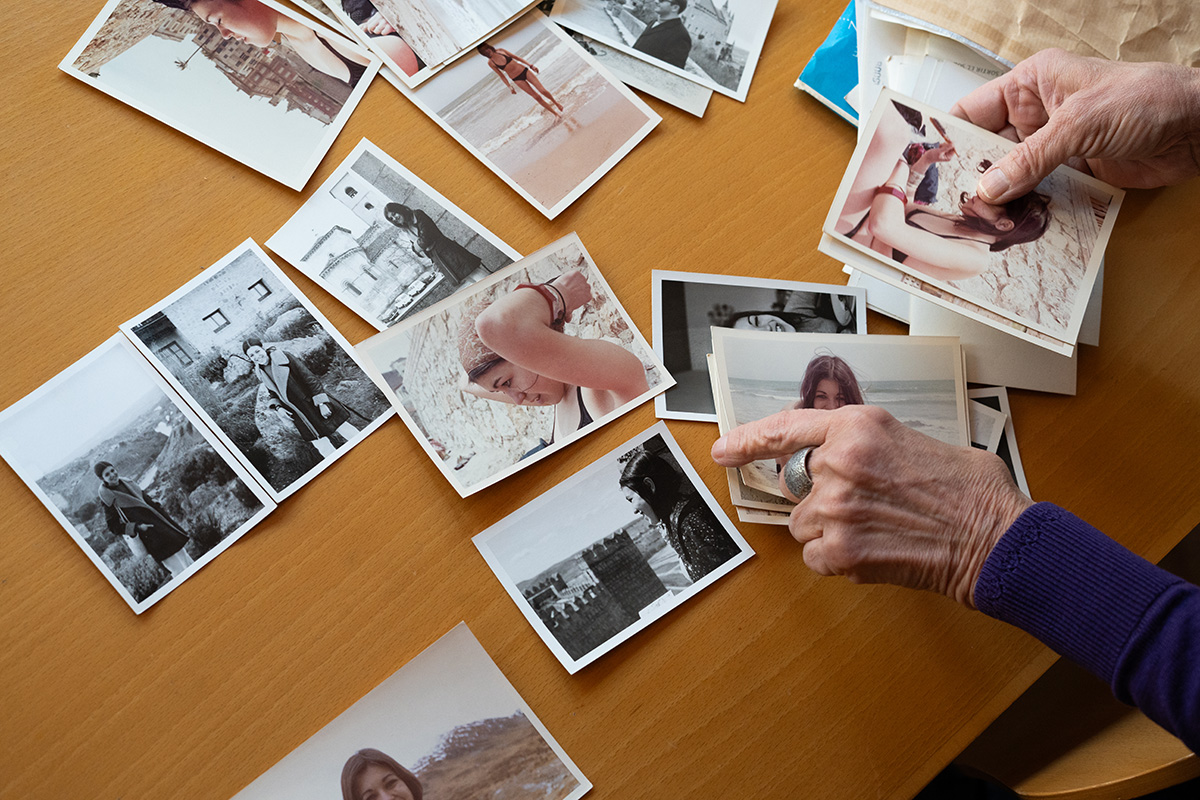
A Barcelona-based photographer, audiovisual artist, and activist has created an exhibit that profiles Spanish women who suffered abuse in institutions that Gen. Francisco Franco’s dictatorship established.
Luca Gaetano Pira, who is originally from Italy, spoke with women who the regime, which governed Spain from 1936-1975, sent to Women’s Protection Board institutions.
The regime in 1941 created the board the country’s Justice Ministry oversaw.
Franco named his wife, Carmen Polo, as the board’s honorary president. Then-Prime Minister Felipe González fully dissolved the board in 1985, a decade after Franco’s death.
Gaetano’s exhibit is called “Las Descarriadas” or “The Misguided Women” in English.
“These are women who were detained between 1941 and 1985 for reasons that are unthinkable today: being lesbian, poor, pregnant out of wedlock, rebellious, politically active … or simply considered ‘morally suspect,'” Gaetano noted to the Washington Blade.
Groups affiliated with the Spanish Catholic Church ran these institutions. Gaetano pointed out they were “presented as social assistance centers.”
“In reality, they were spaces of punishment and forced reeducation, where isolation, unpaid work, and psychological violence were the norm,” he said. “Many of the survivors are still alive. Their testimonies are powerful, urgent, and of extraordinary current relevance.”
The regime sent more than 40,000 women to Women’s Protection Board institutions.
“Despite its seemingly benevolent name, it was in fact one of the most powerful instruments of moral and social control over women during and after the dictatorship,” notes the exhibit. “Under the guise of care and re-education, this institution functioned as a repressive apparatus that punished women who deviated from the ideal feminine model imposed by Franco’s regime: submissive, obedient, married, and dedicated to motherhood within the Catholic family structure.”
The Spanish Catholic Church last month issued a public apology, but Gaetano described it as “very soft” and noted “the women did not accept it.” Gaetano also compared the Women’s Protection Board institutions to Ireland’s Magdalene Laundries.
The Associated Press notes tens of thousands of “fallen” women were sent to the laundries that Catholic nuns operated in Ireland from the 18th century until the mid-1990s. Then-Irish Prime Minister Edna Kenny in 2013 issued a formal apology for the abuses that women suffered in the laundries and announced the government would compensate them.
The Spanish government has yet to offer compensation to the women abused in Women’s Protection Board institutions.
“My work focuses on recovering the historical memory of marginalized communities, particularly through the portrayal of survivors of institutional violence and the use of archival materials,” Gaetano told the Blade, noting he has also sought to highlight the repression that LGBTQ people suffered during dictatorships in Portugal and Latin America.
Gaetano’s exhibit can be found here:
Afghanistan
ICC issues arrest warrants for Taliban leaders over persecution of LGBTQ people, women
Groups ‘non-conforming’ with group’s gender policy targeted

The International Criminal Court on Tuesday issued arrest warrants for two top Taliban officials accused of targeting LGBTQ people, women, and others who defy the group’s strict gender norms.
The warrants are for Hibatullah Akhundzada, the Taliban’s supreme leader, and Afghanistan Chief Justice Abdul Hakim Haqqani.
“Based on evidence presented by the Office (of the Prosecutor), the judges found that there are reasonable grounds to believe that they have committed — by ordering, inducing, or soliciting — the crime against humanity of persecution, under article 7(1)(h) of the Rome Statute, on gender grounds, against girls, women, and other persons non-conforming with the Taliban’s policy on gender, gender identity or expression; and on political grounds against persons perceived as ‘allies of girls and women,’” reads an ICC press release that announced the warrants.
Karim Khan, the ICC’s chief prosecutor, in January announced a request for warrants against Taliban officials over their treatment of women and other groups since they regained control of Afghanistan in 2021. The request marked the first time the court specifically named LGBTQ people as victims in a gender persecution case before it.
“The issuance of the first arrest warrants in the situation in Afghanistan is an important vindication and acknowledgement of the rights of Afghan women and girls,” reads the press release the ICC released on Tuesday. “It also recognizes the rights and lived experiences of persons whom the Taliban perceived as not conforming with their ideological expectations of gender identity or expression, such as members of the LGBTQI+ community, and persons whom the Taliban perceived as allies of girls and women.”
A report that Outright International released in 2023 notes Taliban officials have systematically targeted LGBTQ people — especially gay men and transgender women.
Taliban officials have subjected them to physical and sexual assault as well as arbitrary detention. The Outright International report also notes Taliban authorities have carried out public floggings for alleged same-sex sexual relations, and have collected intelligence on LGBTQ activists and community members.
Artemis Akbary, executive director of the Afghanistan LGBTIQ Organization, praised the ICC.
“Today is a historic moment for LGBTIQ victims and survivors,” he said on social media.
-

 Federal Government2 days ago
Federal Government2 days agoTreasury Department has a gay secretary but LGBTQ staff are under siege
-

 Virginia3 days ago
Virginia3 days agoDefying trends, new LGBTQ center opens in rural Winchester, Va.
-

 District of Columbia2 days ago
District of Columbia2 days agoGay GOP group hosts Ernst, 3 House members — all of whom oppose Equality Act
-

 District of Columbia2 days ago
District of Columbia2 days agoD.C. police seek public’s help in July 5 murder of trans woman










